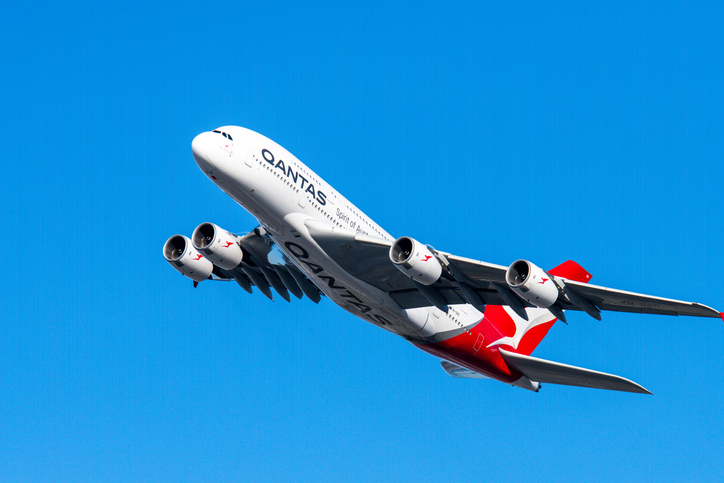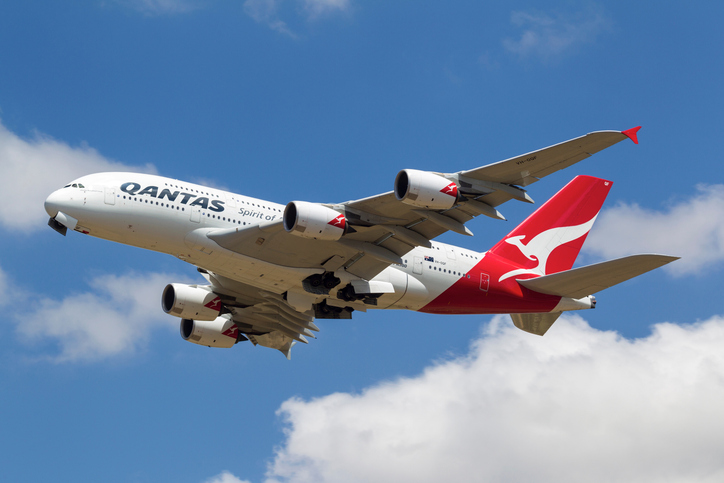Qantas Cyberattack: A $6 Million Wake-Up Call for Global Aviation
The digital battleground has intensified, and airlines, once symbols of secure global travel, are now prime targets. Qantas's recent massive data breach isn't merely an isolated incident; it's a stark, public reminder of how fragile trust in our interconnected world truly is. With personal information from up to six million customers potentially compromised, this incident marks one of Australia's largest cybersecurity breaches, sparking serious concerns about the escalating wave of cybercrime targeting global airlines and critical infrastructure.
On Wednesday, the airline confirmed that a hacker accessed a third-party customer service platform used by its call centre. This critical point of entry exposed sensitive data, including customer names, email addresses, phone numbers, birth dates, and frequent flyer numbers. Crucially, the airline confirmed that financial information like credit card details, passport numbers, passwords, or PINs were not stored on the compromised system.
"We expect the amount of stolen data will be significant," Qantas stated, acknowledging the profound breach of customer trust. The airline swiftly notified the Australian Cyber Security Centre, the Office of the Australian Information Commissioner (OAIC), and the Australian Federal Police, with independent cybersecurity experts now assisting the ongoing investigation.
The Aviation Industry Under Siege: A Coordinated Threat
The Qantas incident is not an anomaly; it fits a disturbing pattern. It follows recent, similar breaches at Hawaiian Airlines and Canada’s WestJet, prompting urgent warnings from the U.S. Federal Bureau of Investigation (FBI). While Qantas has not officially confirmed attribution, the notorious cybercrime group Scattered Spider – known for its sophisticated social engineering tactics – is a prime suspect in other recent airline compromises.
"This trend's scale and coordination are particularly alarming," noted Mark Thomas, Australia Director of cybersecurity firm Arctic Wolf. "Qantas is merely the latest victim in what appears to be a global campaign."
Scattered Spider's modus operandi specifically targets complex organizations like airlines. They are infamous for leveraging social engineering, often impersonating IT personnel or employing phishing techniques to trick employees into granting access or bypassing multi-factor authentication (MFA). Their attacks frequently target help desks and, critically, third-party vendors – precisely the vector exploited in the Qantas incident. This makes them exceptionally dangerous for large enterprises with vast digital supply chains.
"It's too early to confirm if Scattered Spider is directly responsible," stated Charles Carmakal, CTO of Google-owned cybersecurity firm Mandiant, "but global airline organizations must remain on high alert for social engineering attacks, especially those aimed at their extended ecosystems."
Related: Cyber Attacks Sweep Retail Sector: Harrods Among Latest Victims in Coordinated Campaign
Related: Why Startups Are Prioritizing Cybersecurity Like Never Before
The Real Cost: What a Breach Means for Customers
For affected customers, this breach transcends a mere technical hiccup; it represents a significant personal risk. Stolen birth dates, phone numbers, and email addresses are invaluable puzzle pieces for cybercriminals. This seemingly disparate data can be precisely recombined to craft highly convincing spear phishing campaigns, enabling more targeted fraud. It also facilitates SIM-swapping attacks, where criminals trick mobile carriers into porting your phone number to their device, thereby intercepting critical MFA codes for account takeovers.
"These aren't just random bits of data," explained cybersecurity analyst Joanna Nguyen. "They are the building blocks that, when meticulously assembled, can unlock a person's entire digital life." While Qantas has assured that frequent flyer accounts themselves were not directly accessed, the exposed data could still be weaponized in sophisticated scams designed to exploit loyal customers.

Australia's Intensifying Cyber Battlefield
This Qantas breach marks Australia's most high-profile data compromise since the significant Optus and Medibank incidents of 2022. Those events spurred tougher cyber resilience laws, yet the current attack underscores a stark reality: regulatory compliance does not equate to impregnable security. According to the Australian Signals Directorate, reported cyberattacks surged by 23% last year, with the average cost per breach now exceeding AUD $3 million.
Despite increased regulation and awareness, many businesses remain critically vulnerable. The Qantas incident powerfully illustrates a pervasive weakness: over-reliance on, and under-securing of, third-party platforms. These external vendors often become overlooked entry points in an organization's broader cybersecurity strategy, highlighting the urgent need for comprehensive supply chain cybersecurity scrutiny.
Related: $11 Billion Lie: Inside WorldCom's Massive Fraud That Shook Wall Street
Safeguarding Your Digital Footprint: Essential Customer Actions
Even with no passwords compromised, cybersecurity experts urge all Qantas customers to proactively take precautions:
- Vigilance is paramount: Remain highly suspicious of unsolicited emails, texts, or calls, particularly any referencing Qantas or your travel plans. Cybercriminals will leverage the breach context.
- Enable Multi-Factor Authentication (MFA): Implement MFA on all your online accounts, especially email, banking, and social media. This crucial layer of security significantly reduces the risk of account takeover.
- Consider Credit Monitoring: If you believe your personal data (beyond just contact details) was included in the breach, a credit monitoring service can alert you to potential identity fraud.
- Avoid Unfamiliar Links: Never click on suspicious links, even if they appear to originate from legitimate or official sources. Verify legitimacy independently.
Qantas's Uphill Battle for Trust
This cyberattack hits Qantas at a challenging juncture. The airline is still actively rebuilding its reputation following a series of public scandals, including the illegal sacking of ground workers during the COVID-19 pandemic and the controversial sale of tickets for already-cancelled flights.
While current CEO Vanessa Hudson has made tangible strides in restoring public confidence since taking over in 2023, this incident risks cementing a perception of systemic issues, from operational missteps to critical security lapses. Rebuilding trust under such intense scrutiny demands not only transparent communication but also a consistent, demonstrable commitment to customer well-being and robust digital security practices. For Qantas, this is an arduous, years-long journey.
Related: Cybersecurity Challenges for Modern Entrepreneurs: What You Need to Know
The New Reality: Cybersecurity as Brand Integrity
The Qantas cyberattack is far more than a corporate misstep; it's a sobering indicator of a broader, more dangerous trend: increasingly sophisticated cyber threats targeting global industries, particularly those integral to critical infrastructure. For consumers, it serves as a stark reminder of how vulnerable personal information remains, even when entrusted to major, supposedly secure brands.
As cybercriminals grow more organized, aggressive, and adept at exploiting vulnerabilities within complex digital ecosystems, companies must do more than simply strengthen their internal defenses. Cybersecurity is no longer solely an IT concern; it has become a fundamental business imperative and a core pillar of brand integrity. The ability to secure data and relentlessly safeguard customer trust will, increasingly, define market leaders from those left behind. Qantas, like many others, now faces the immense challenge of earning back that trust, one secure interaction at a time.














